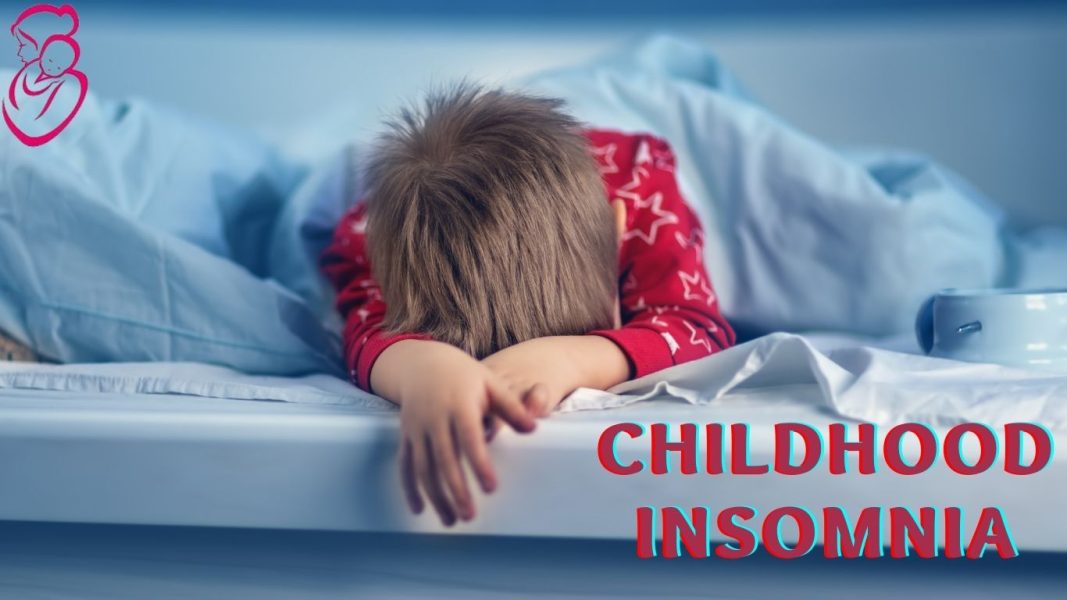As a mother of two kids, I’ve always struggled with tantrums, and no matter how hard I tried to dodge or manage them, I always eventually ended up where I started. It was really nerve-wracking because no matter how hard I tried not to explode or be calm and peaceful, it was overwhelming for both my toddlers and me. Through this blog, I will share bit about childhood Insomnia and related temper tantrums.
Then, as I began to observe them, I made an interesting discovery: when my children visit my parents for a few weeks of vacation, they are comparatively well behaved. They only have tantrums at rare moments, and when they do, they readjust to their typical demeanour rather rapidly and effectively.
Due to the nature of my husband’s work, he would usually arrive home late at night, and my children would wait for him. I never forced them to sleep because I thought it was the best alternative for them to show their love for him, and I also felt they had no other opportunity to spend time with him than during those late evening hours.
My parents are early sleepers at my home, so they go to bed early with my parents, and they get enough sleep.
So It occurred to me that My kids were suffering from “child insomnia.”
Then I started making a sleep schedule for them and trying to stick to it no matter what, and believe me when I say, the results were incredible!!
They greatly enhanced their attitude. I wouldn’t think they have gone from being mischievous and having tantrums to being ‘book good kids’ who never cross the threshold. They keep throwing tantrums and making my nerves frayed, but the incidents seem to have become smaller, and they are adapting to these behaviours fairly efficiently.
📣 Loved what you read? Want to go deeper into conscious parenting? ✨ The Power of Manifestation in Parenting is now available — A soulful guide packed with real-life tools like affirmations, energy shifts, and sleep talk that I personally use with my son, Hitarth. 💛 Start your journey toward calmer, connected parenting today. 🎉 Launch Offer: Only ₹99 (limited-time price!) 📲 Instant download. No waiting. 👉 Grab your copy now!.
So, what exactly is child insomnia, and how can you know if your child is suffering from it?
Let’s have a look at it.
What Is Childhood Insomnia?
Do you know how much sleep a child of a certain age should get?
Let me show you a chart that professionals have made.

The inability to fall asleep or stay awake at night, resulting in unrefreshing or non-restorative sleep, is known as insomnia, and in children, it is called child insomnia.
It is very common among children, especially as they grow up.
It may go away with time, but if your child has difficulty falling asleep more than three times a week for several months and significantly influences their day-to-day functioning, it could be a sign of childhood insomnia.
So, if your child is not frequently receiving the quantity of sleep recommended for their age in the above table, you should consider it.
Symptoms of Childhood Insomnia
- The child is frequently grumpy, irritated, or overly emotional.
- The child may fall asleep in the car.
- At school or home, the child has difficulty concentrating.
- Following chats, he may have looked to be struggling.
- Space out a lot.
- After you’ve got them up for the day, they have trouble waking up or falling back asleep.
- Frequently grow tired or crash much early than usual.
Causes of Childhood Insomnia
Habits
- Before going to bed, watching TV or smartphone.
- During the day, there is too much sugar.
Stress
- Having trouble keeping up in class.
- Problems with friends.
- Problems in the marriage of the parents.
- Sleeping arrangements have changed.
Caffeine
Caffeine has been shown to reduce sleep in adults. Avoid these drinks as much as possible, particularly after lunch.
Medication Side Effects
Other medical concerns include
- Sleep apnea.
- Restless leg syndrome.
- Allergies cause a stuffy nose.
- Eczema causes itchy skin.
- Bedwetting.
Management of Childhood Insomnia
A child of any age will have restful sleep if they develop good lifestyle patterns.
Some of the methods for ensuring that your children receive a decent night’s sleep include:
- Use the bed only for sleeping and make your kid sleep in their bed.
- Make sure your bedroom is cosy and comfortable.
- Even on weekends, stick to a rigid sleep routine.
- Make sure your child doesn’t go to bed hungry or too full.
- Encourage a healthy lifestyle that includes frequent exercise.
- Set boundaries with devices.
- Encourage natural light exposure first thing in the morning.
- Address the child’s bedtime worries and sleep anxiety.
- Assist your child in dealing with night terrors and bedwetting.
- Spend quality time with your children daily.
How To Deal With Bedtime Anxieties & Sleep Worries?
It can be quite frustrating for both parents and children if they have difficulty going asleep or sleeping for lengthy periods, especially in older children. Throwing insults or irritation only makes them more anxious, and it further disturbs their quality of sleep. So, here are a few things we may do to ensure that their bedtime anxiety and sleep worries are tackled.
- First and foremost, talk, talk and talk to them. They must realize that we value their concerns and will go to great lengths to support them in sleeping better without making them feel guilty. So, pay close attention to what they have to say and then discuss their choices.
- Develop habits that will help them sleep better, such as brushing their teeth before bed, taking a warm bath before bed, making the bed right before bedtime, reading bedtime stories to them, using the bed only to sleep etc.
- If your child is afraid of the dark, keep a dimly lit light on in your child’s room at night.
- Remember, always encourage them to sleep alone without aid, and be supportive if they cannot do so while still adhering to the routine.
If your child still has trouble sleeping after making these adaptions, it’s time to consult their paediatrician. Sleep problems can be helped with CBT (cognitive behavioural therapy) and, in certain instances, medication.
How to Deal With Bedwetting in Children?
Bedwetting is a common thing among children. While some children may be able to stop bedwetting at a young age, others may require more time to adjust. In my example, my elder child will be seven years old next month but still wets the bed, although my younger child stopped years ago. It can be exhausting for me to deal with, but I try not to lose my cool in front of my child. So, here are some tips to help kids sleep better.
Acknowledge the Bedwetting
Assure them that it’s fine if they can’t manage their bedwetting and that you’ll work together to find a solution. Check out this blog on When should you worry about your child wetting the bed?
Adjust the Drinking Schedule
Encourage your child to drink water during the day and limit fluid intake after the evening, preferably just a glass of water. Also, avoid spicy foods, desserts, and snacks at night because they may cause them to be more thirsty.
Make Bladder Training A Priority
Even if they don’t feel like it, make them go to the restroom at set times. Please encourage them to use the restroom one hour before bedtime, 15 minutes before bedtime, and finally, right before bedtime. This permits the bladder to stay empty for long periods. Don’t wake your child up in the middle of the night frequently to go to the bathroom since this will disrupt their sleep pattern and make them feel more anxious and tired. Preferably, wake them up once or twice during the night to use the restroom.
Consider Other Aids
They may be able to improve their bedwetting tendencies by using a bedwetting alarm or training pants. It may also be beneficial to use absorbent undersheets or underpants.
Consult A Doctor
If your child is 7 years old or older and still wets the bed despite these efforts, there may be a medical or psychological problem. Some children may require medicine to halt this, so always seek the counsel of a paediatrician and take the necessary measures.
Conclusion
Remember that there is no such thing as the “best” or “worst” method to parent. We’re all learning alongside our children. Trust your instincts and completely love your children, and the rest will take care of themselves. Have no concerns, and happy parenting to all, including myself!!!
Editor’s Recommendations
Self Sleep Training Methods & Guide By A Mommy Blogger
Recognizing & Managing The Impulsive Behaviour In A Hyperactive Child
Your comments and shares do more than just support our blog—they uplift the amazing moms who share their stories here. Please scroll down to the end of the page to leave your thoughts, and use the buttons just below this line to share. Your support makes a big difference!



